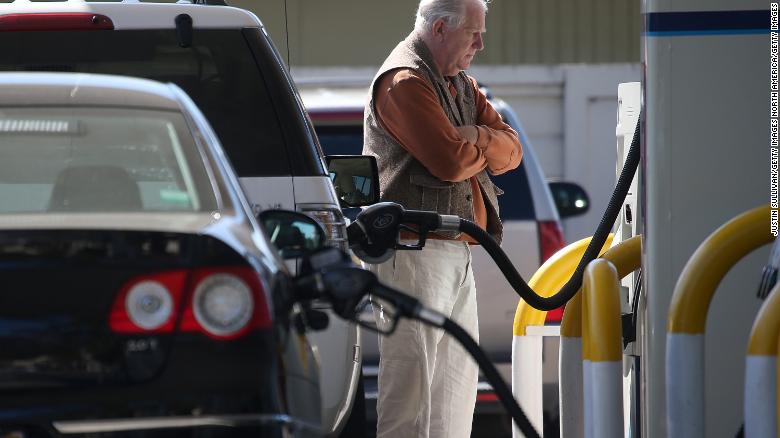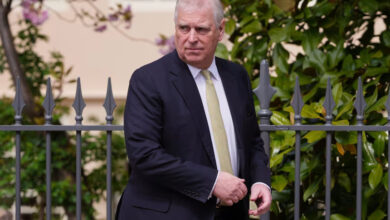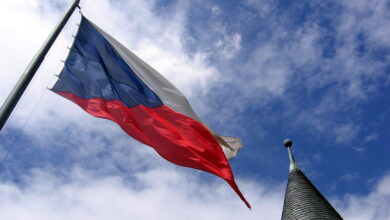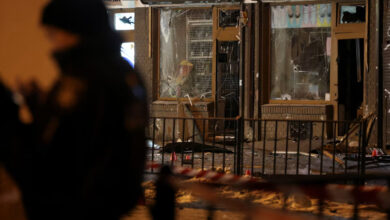
New York (CNN Business) – As crude prices surge, oil companies are raking in money — enormous profits gained from practically no extra investment.
ExxonMobil (XOM) made a $23 billion profit in 2021, its largest in seven years. And as oil prices rise, it’s expected to make nearly $33 billion this year. BP (BP), meanwhile, earned $12.8 billion in 2021 and is forecast to earn $15.6 billion in 2022.
This level of enormous earnings growth has driven talk on both sides of the Atlantic about the need for a windfall profit tax on Big Oil. Those taxes could provide direct financial assistance to consumers struggling with high energy costs.
Both the United States and United Kingdom have imposed windfall profit taxes in the past in with broad political support. But this time around, support has been mostly limited to liberal parties in both nations.
Prime Minister Boris Johnson has opposed the idea. His finance minister, Rishi Sunak, is expected to lay out the British government’s plans to help citizens deal with rising energy costs Wednesday.
In Washington, Democratic supporters of a windfall profit tax argue it’s the only fair way to help people who can’t afford to drive or heat their homes.
“We need to curb profiteering by Big Oil and provide relief to Americans at the gas pump — that starts with ensuring these corporations pay a price when they price gouge,” said Sen. Elizabeth Warren, one of the 12 co-sponsors of the measure in the Senate.
The UK opposition Labour Party is calling for taxes on profits made by North Sea oil and gas companies to be raised for a year to help pay for a variety of financial relief measures. The US bill would tax the profits Big Oil companies make on crude prices above recent historical levels. It would pay hundreds of dollars annually to low- and middle-income taxpayers.
But that assumes average oil prices of $120 a barrel — and prices surged past that level two weeks ago. Though prices have since fallen back, it highlights the challenge of writing legislation around a volatile commodities market. Brent oil closed Friday at just under $108. Retail gasoline prices have ticked down slightly, though at a much slower pace than oil prices have fallen.
The US bill taxes the profits big oil companies get on crude prices above recent historical levels. But that assumes average oil prices of $120 a barrel. Prices surged past that level two weeks ago but have since fallen back.
Putin’s money
The sprawling billion-dollar palace that sits on a hilltop overlooking the Black Sea is seen by some Kremlin critics as the ultimate emblem of Russian President Vladimir Putin’s legacy of corruption.
Dubbed “Putin’s Palace,” the 190,000 square-foot mega-mansion was purportedly built for his personal use with funds from billionaire oligarchs, whom he allegedly allowed to flourish in Russia’s notoriously corrupt economy so long as they shared the wealth — with him.
The property has its own amphitheater, underground hockey rink and private seaport, according to a documentary produced by jailed Russian opposition leader Alexey Navalny’s anti-corruption group. There is a no-fly zone in the skies above and a no-boating zone in the surrounding waters.
The magnificent fortress stands in stark contrast to the tiny 800-square-foot apartment Putin claims in his official 2020 financial disclosure.
Yet, despite the opulence of the hilltop retreat, “I would be very surprised if Putin ever sets foot in there again,” Nate Sibley, an expert on Russian corruption who advises members of Congress, told CNN.
Sibley said the palace symbolizes what he sees as a bygone era of Putin pursuing, through the wealth of oligarchs, a luxurious lifestyle that he could never afford on his government salary.
While Putin is believed to have amassed a hidden fortune by such means earlier in his career, Sibley said, he has since become less reliant on his wealthy benefactors over the years and has surrounded himself instead with government and military loyalists who share his hardline nationalist views.
That shift, some Russia experts told CNN, may make it more difficult to make Putin personally feel the sting of economic sanctions the US and its European allies have imposed to punish him for invading Ukraine.
Putin has positioned himself, as Sibley put it, “above the fray.”




